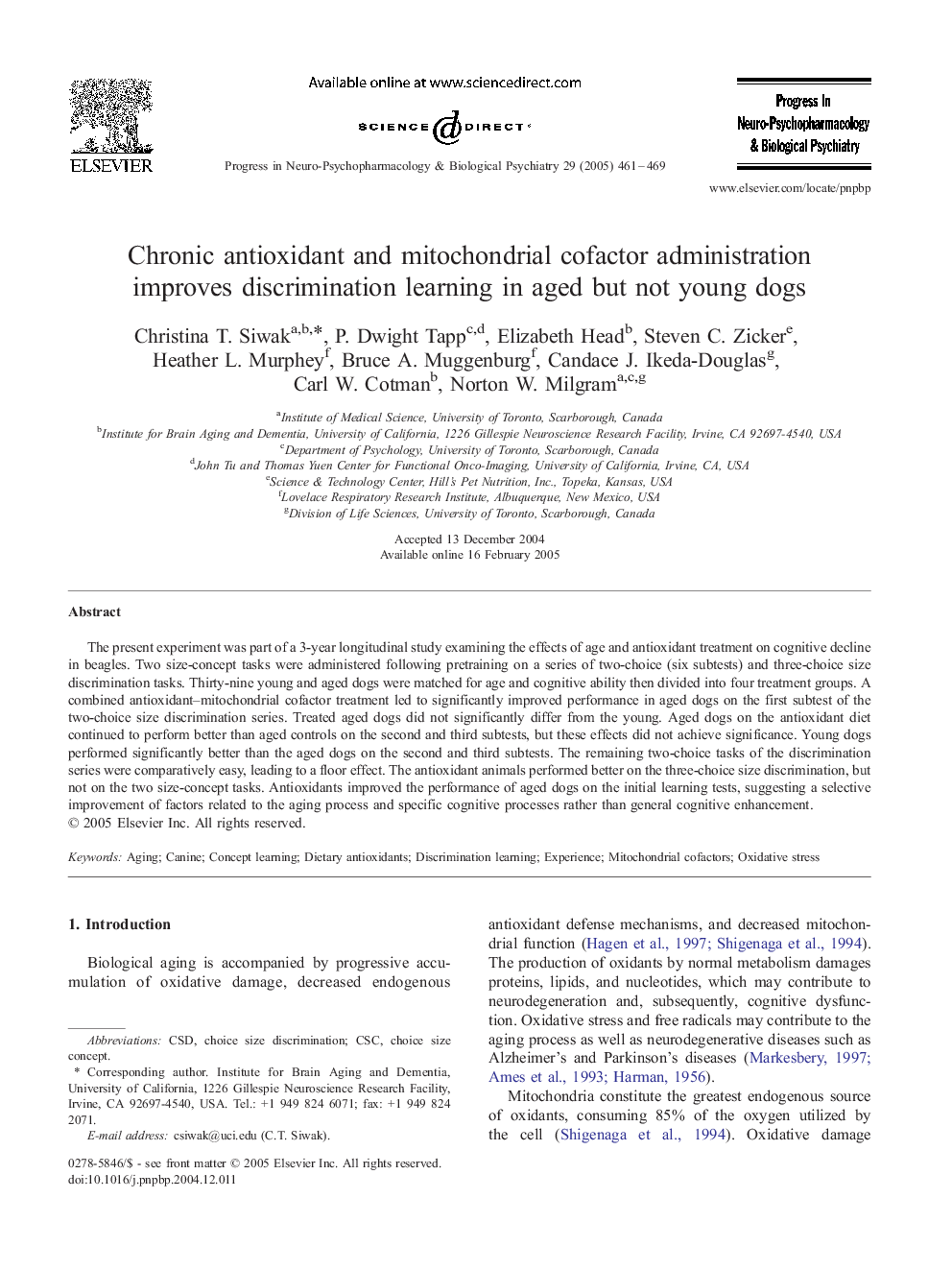| Article ID | Journal | Published Year | Pages | File Type |
|---|---|---|---|---|
| 9016350 | Progress in Neuro-Psychopharmacology and Biological Psychiatry | 2005 | 9 Pages |
Abstract
The present experiment was part of a 3-year longitudinal study examining the effects of age and antioxidant treatment on cognitive decline in beagles. Two size-concept tasks were administered following pretraining on a series of two-choice (six subtests) and three-choice size discrimination tasks. Thirty-nine young and aged dogs were matched for age and cognitive ability then divided into four treatment groups. A combined antioxidant-mitochondrial cofactor treatment led to significantly improved performance in aged dogs on the first subtest of the two-choice size discrimination series. Treated aged dogs did not significantly differ from the young. Aged dogs on the antioxidant diet continued to perform better than aged controls on the second and third subtests, but these effects did not achieve significance. Young dogs performed significantly better than the aged dogs on the second and third subtests. The remaining two-choice tasks of the discrimination series were comparatively easy, leading to a floor effect. The antioxidant animals performed better on the three-choice size discrimination, but not on the two size-concept tasks. Antioxidants improved the performance of aged dogs on the initial learning tests, suggesting a selective improvement of factors related to the aging process and specific cognitive processes rather than general cognitive enhancement.
Keywords
Related Topics
Life Sciences
Neuroscience
Biological Psychiatry
Authors
Christina T. Siwak, P. Dwight Tapp, Elizabeth Head, Steven C. Zicker, Heather L. Murphey, Bruce A. Muggenburg, Candace J. Ikeda-Douglas, Carl W. Cotman, Norton W. Milgram,
